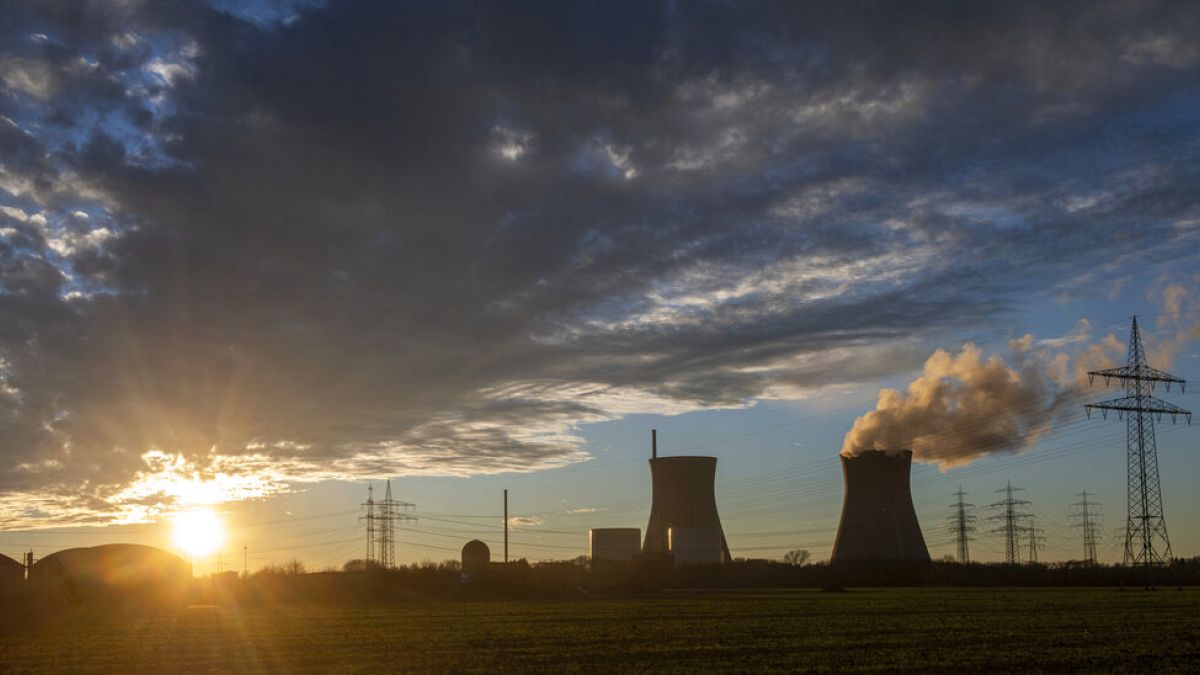France is the most dependent country on nuclear energy, while Italy is the most reliant on natural gas.
The European Commission’s latest proposal to label natural gas and nuclear energy as green sources under the so-called EU taxonomy has reopened schisms within the bloc on what should be considered sustainable sources of energy.
Last year, when Brussels introduced the EU taxonomy – a technical rulebook identifying activities that contribute to the green transition – natural gas and nuclear energy were notably absent.
Now, with the Commission proposing their inclusion in its classification system, the debate on how green these energy sources are has been revived.
Natural gas accounted for 22.3% of the EU’s energy mix in 2019, with nuclear making up 13.1% according to Eurostat, but their use varies in every member state.
We look at what energy sources European countries are most dependent on.
France
With Paris said to be pushing hard for nuclear energy to be labelled as green, it should come as no surprise that it is France’s primary energy source, accounting for 41.1% in 2019. Natural gas came in third place with a 14.8% share, behind petroleum products like crude oil, which made up 31.2% of the country’s energy mix. Solid fossil fuels, like coal, were the least used at around 3.6%, with renewable energy just ahead at 11.2%.
Germany
The EU’s largest member state and biggest polluter says nuclear energy should not be considered green, but many within the German coalition government want gas to be included as part of the bloc’s transition towards renewables. Like with France, it will come as no surprise then that natural gas made up 24.4% of the country’s energy mix in 2019, just behind first placed petroleum products at 36%. Nuclear energy in Germany is the least used source (6.2%), with its phase-out expected as early as 2022. Renewables came in fourth (14.6%), behind solid fossil fuels at 19.6%.
Italy
Natural gas made up over a third of total energy available in Italy (38.6%) in 2019, one of the EU’s principal users of the energy source. Nuclear energy on the other hand wasn’t even used by the country after it phased out its own use of it following the Chernobyl reactor disaster in the late 1980s. However, renewable energy accounted for 18.7%, well behind second-placed petroleum products, which made up 35.9% of Italy’s energy mix.
Spain
Madrid is wholly opposed to Brussels’ plans to include nuclear energy and natural gas in its green taxonomy, saying it sends the wrong message and “makes no sense”. Spain’s use of both energies stood respectively at 11.4% and 23.1% in 2019, but with plans to eliminate nuclear power by 2035 and increase its use of renewables from 13.7%, this proportion is expected to decrease significantly over the next few years. However, the country will have the difficult task of weaning itself off petroleum products like crude oil, which accounted for nearly half of its energy mix (47.2%).
Portugal
Like Italy, Portugal has no nuclear power reactors and remains opposed to any expansion of the technology. Its use of natural gas though, made up over one-fifth of the country’s energy portfolio in 2019 (21.3%), with renewable energy accounting for nearly a quarter of Portugal’s mix (24.4%). Like Spain, however, petroleum-based products were seriously high at 47.4%, demonstrating just how tough it will be to reduce greenhouse gas emissions.
All data comes from Eurostat.
